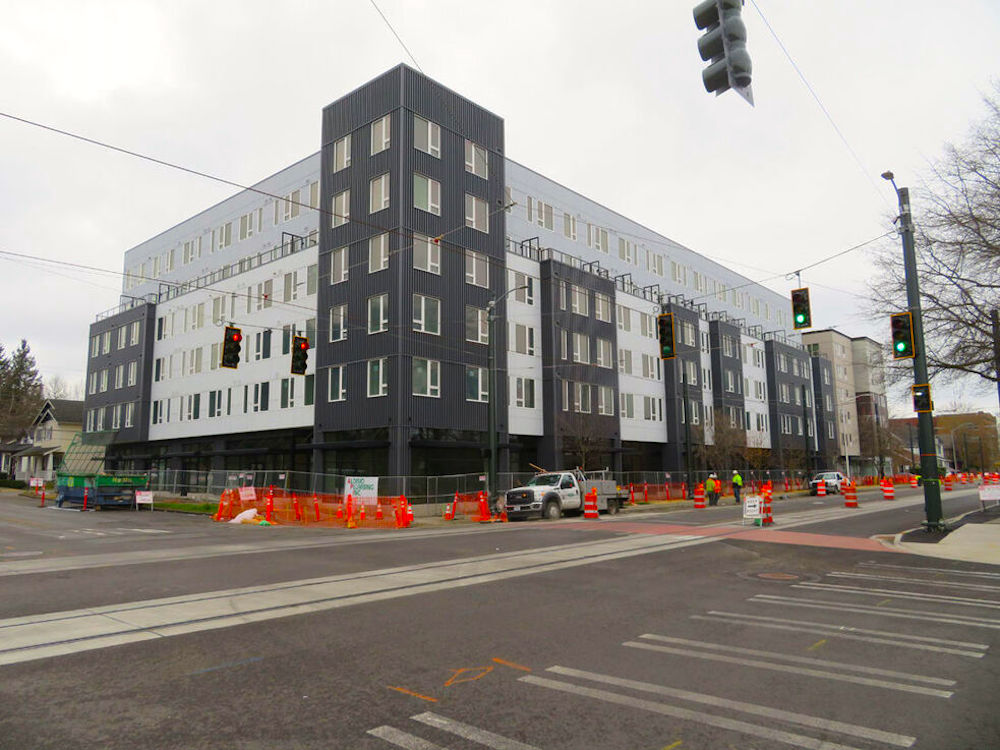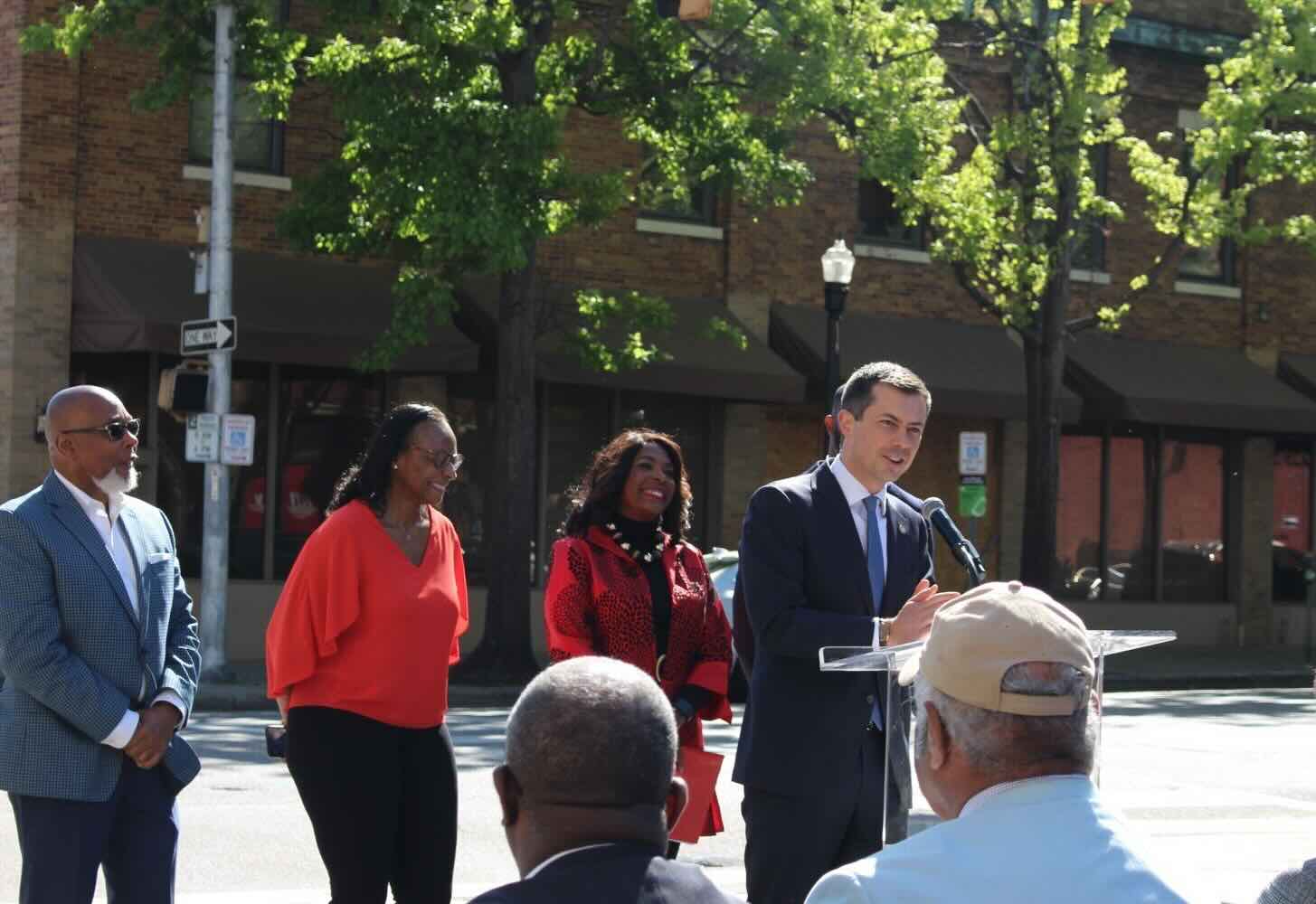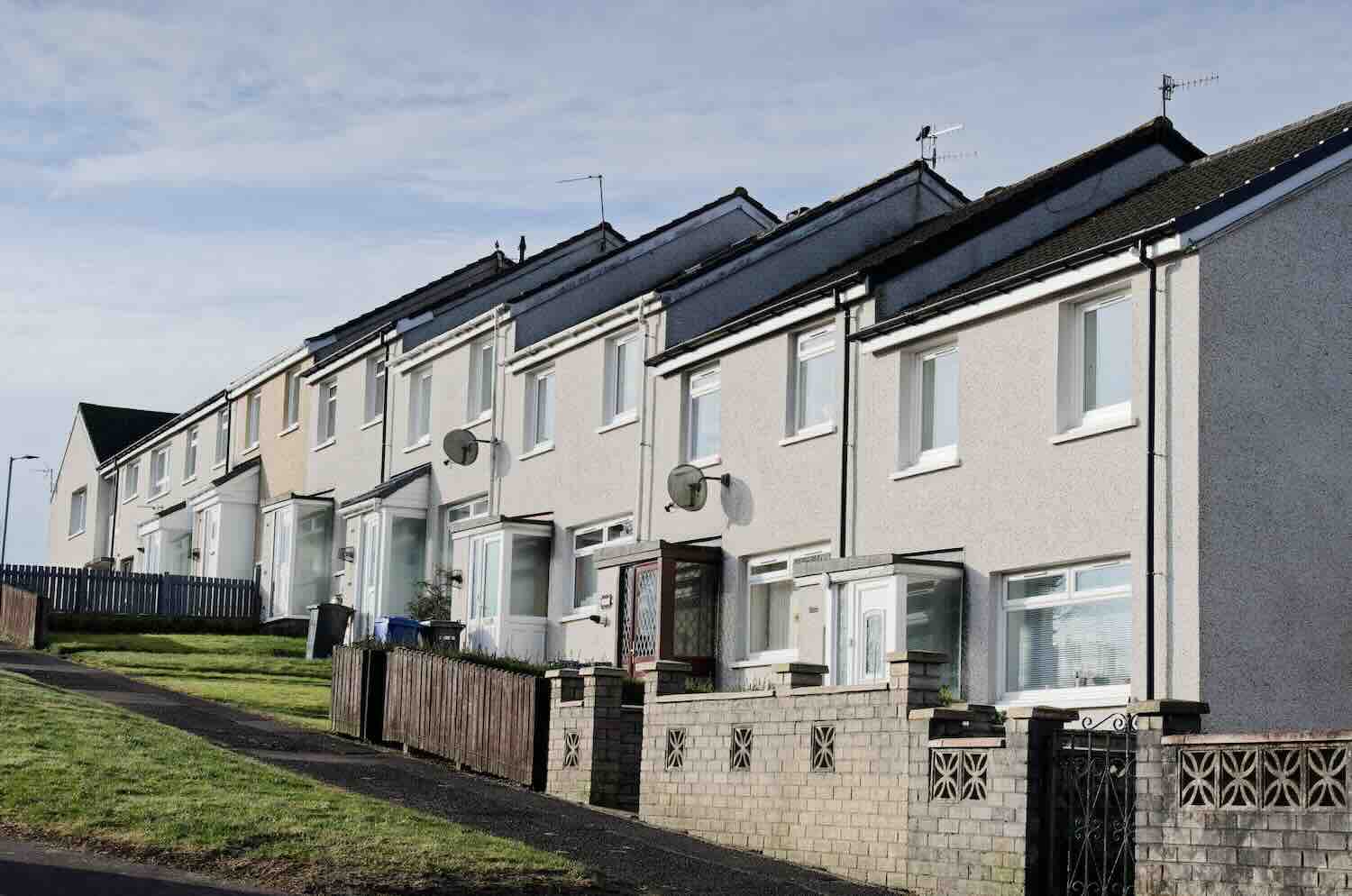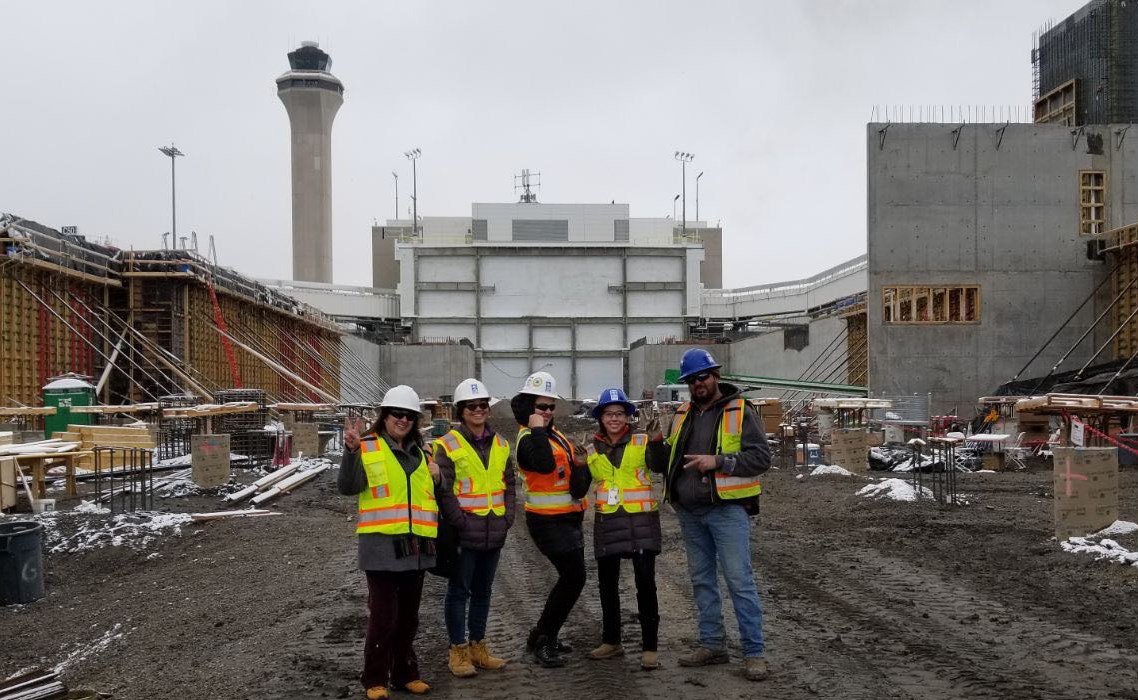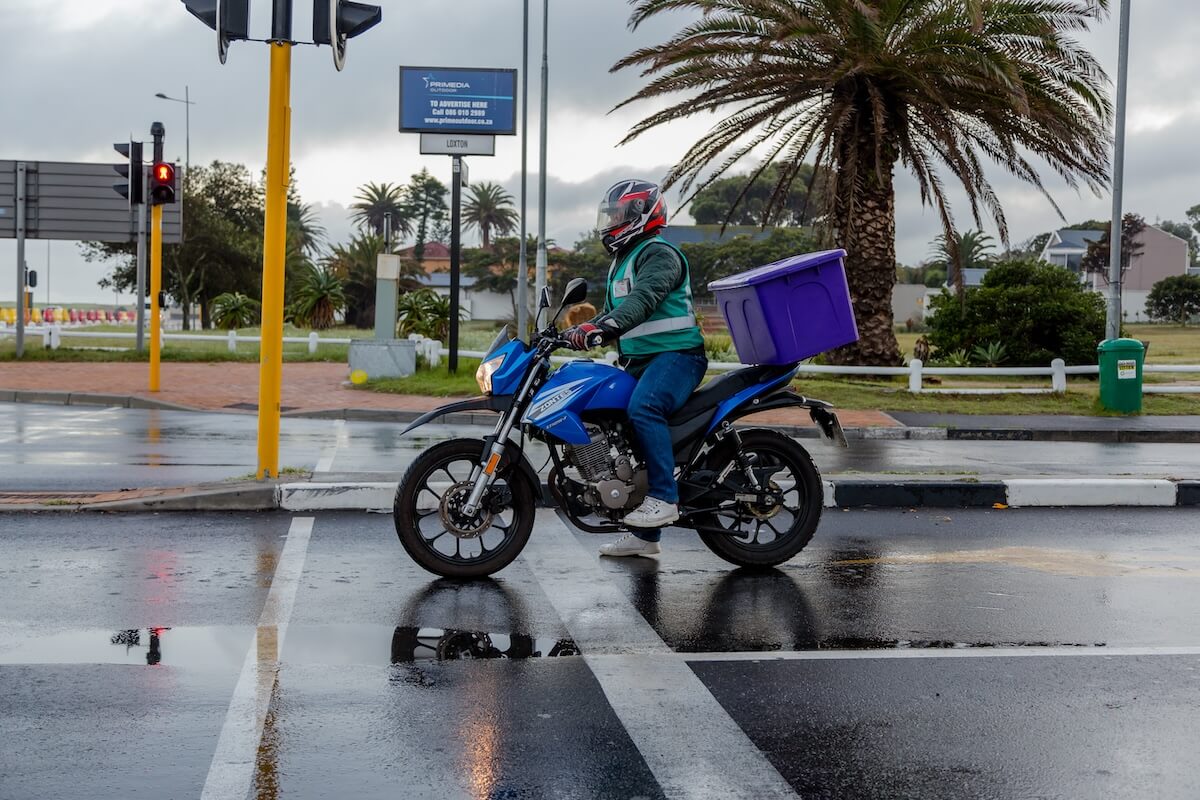ImpactAlpha, Feb. 23 – Decades ago, Tacoma’s Hilltop neighborhood descended into gang violence and disinvestment, driving longtime residents away.
Now, remaining residents face a different challenge: finding affordable housing in a neighborhood poised for gentrification.
A 161-unit housing development in the neighborhood is demonstrating how development and social goals can go hand in hand.
Koz on MLK, a mixed-used workforce housing complex that opened last May with rents starting at less than $1,000 including utilities, is aimed at residents making 60% to 80% of the area’s median income – the so-called “missing middle” of affordable housing. (Most federal and state initiatives are targeted for renters at 30% or below median income). The building is sustainably designed. And the ground floor retail businesses address two glaring needs for the area: a credit union that is focused on financial literacy and underserved borrowers, and a food co-op that stocks local produce and pays a living wage.
Koz on MLK is one of the properties in Sorenson’s Catalyst fund. Launched in 2019 by Jim Sorenson and Patrick McKenna, Catalyst seeks out developers looking to build affordable housing that supports local residents and the broader community through healthy homes, job creation, and economic revitalization.
“It was apparent very quickly that we share a lot of the same values,” said Cathy Reines, cofounder and CEO of Koz Development, of the Catalyst team. “This project, for both of our companies, really touched on all of the social impact criteria that we were focused on.”
Public-private partnerships
Catalyst, which bills itself as an impact real estate investment firm, invests in low-to-moderate income, or LMI, communities across the U.S. that have historically been underserved. Its development projects, in cities from Tacoma, Spokane, and Salt Lake City, where it is based, to Minneapolis, St. Louis and Nashville, are often in majority Black and brown communities.
“Unfortunately, 2022’s market volatility only amplified America’s housing affordability crisis, hitting LMI individuals and families the hardest,” Catalyst’s Nina Tschinkel told ImpactAlpha. The firm is committed to “addressing the housing affordability crisis by expanding the nation’s affordable and workforce housing stock, providing individuals and families with safe, quality homes.”
Catalyst is one of three funds under Sorenson’s asset management umbrella (the others are Enable Ventures and the Community Equity Fund). It partners with community-driven real estate developers, almost two-thirds of which are led by women and/or people of color.
The Catalyst model relies on leveraging public financing programs, including historic tax credits, grant dollars, Low Income Housing Tax Credits, and Opportunity Zone incentives, to generate returns that can attract investors. Some 60% of its projects to date have been supported by a total $77 million in public funds.
Koz on MLK, for example, was awarded land on a low-cost basis from the City of Tacoma, and is situated in an Opportunity Zone (Catalyst put up 50% of the capital; local investors supplied the rest).
The kind of local tenants sought out for Koz on MLK are also typical. Catalyst undertakes a community needs assessment for every project to identify gaps in services.
“It’s a very data-driven process,” says Tschinkel. Drawing on up to 30 different publicly available datasets, Catalyst tries to understand racial demographics and identify food deserts and lack of affordable housing, education and preventative health care. The data-driven insights are combined with input from communities and the developers on the ground.
Catalyst has raised close to $300 million to date. It is now eyeing a second fund, with a target of $250 million by year end.
Reines has watched as her fellow market-rate developers have postponed projects as traditional funders have pulled back amid a challenging economic environment.
“We feel incredibly fortunate that there are still equity funds out there trying to make a difference in the world,” she says.

